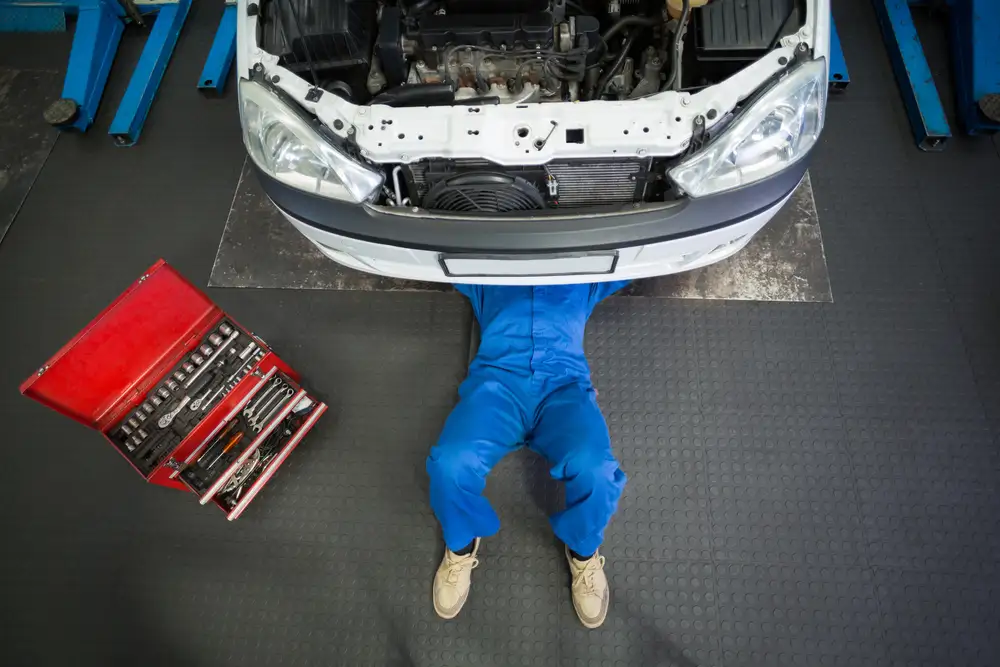
Are you a VAT registered company that uses a car for business purposes? If so, you must familiarise yourself as much as possible with the various VAT implications. These are factors that HMRC will investigate if they conduct a VAT inspection of your company.
Fortunately, the Shorts VAT team is here to tell you everything you need to know about VAT on repairs, fuel and other motoring expenses.
Can VAT be reclaimed on vehicle repairs and maintenance?
VAT incurred on repairs and maintenance for a vehicle (car or commercial) used for business purposes, can be reclaimed as input tax providing the business pays for the work.
It does not matter if the vehicle is used for private motoring or whether or not you have chosen to reclaim VAT on road fuel. This also applies to maintenance provided by a leasing company, provided that the maintenance services are optional and clearly separate from the lease itself.
Can partners or sole proprietors reclaim VAT on repairs?
If you’re a sole proprietor or partner and use a vehicle solely for your own private motoring, you cannot reclaim the VAT on repairs and maintenance.
Accessories fitted at time of purchase
When you buy a car on which VAT was blocked, you cannot recover the VAT you have been charged on accessories fitted at the time of purchase. This applies even if the car dealer itemises them on the sales invoice or invoices them separately. This is because the accessories form part of a single supply of a car, which is subject to the input tax block.
VAT and other motoring expenses
VAT you incurred on other business motoring expenses, for example, fleet management charges or parking charges can be reclaimed, as input tax, subject to the normal rules.
Claiming VAT on road fuel
You can claim all the VAT on road fuel, (subject to partial exemption and non-business restrictions) if your business funds:
- fuel bought for business motoring only
- both business and private motoring as long as you apply the appropriate fuel scale charge or account for VAT on the value of supplies of fuel for private use
If your business funds both business and private motoring and you wish to recover some of the VAT, but do not want to apply the fuel scale charge, you must keep detailed mileage records to enable you to calculate how much fuel is used for business and private motoring and to account for VAT on private use.
Charges to employees for private use of fuel
If you make a charge to employees for private use of fuel bought by the business, you must account for VAT on the charge.
If you account for all the private use in this way, you may claim all the VAT incurred on the purchase of road fuel (subject to the normal rules).
However, the charge must not be below the purchase price of the road fuel used for private purposes. You cannot simply make a nominal charge for road fuel put to private use and still reclaim all the VAT.
If you supply fuel at below cost price to employees or family members, you must adjust the VAT you account for to reflect the full open market value of the road fuel.
VAT and reimbursement of road fuel for business use
If you reimburse your employees for road fuel they have purchased and used for business purposes, you can treat the VAT they paid as your input tax and reclaim it subject to the normal rules.
However, you must be able to show that you have reimbursed them for their actual expenditure on the road fuel used only for business mileage.
If fuel bought by your employees for business is put to private use, i.e., you simply reimburse the full amount of the cost of the fuel purchased, you must account for output tax on the private use in the same way as if you had purchased the fuel directly.
What is the Road Fuel Scale Charge (RFSC)?
The road fuel scale charge (RFSC) is a way of accounting for output tax on road fuel bought by a business for cars (not commercial vehicles) which is put to private use.
If you use the RFSC, you can reclaim all the VAT charged on road fuel (subject to the normal rules) without having to split your mileage between business and private use.
How is the RFSC calculated?
The charge is calculated on a flat rate basis according to the carbon dioxide emissions of the car. HMRC publish fuel scale charge tables which are updated annually on 1 May. The tables show the scale charges for each VAT period. The VAT element tis accounted for in box 1 of your VAT return and the net element in box 6.
You do not have to apply the RFSC to any car which is not made available for private use.
RFSC rules and considerations
If you opt to use the RFSC you must use it for all cars in which are available for private use.
It is not acceptable to use the RFSC for some cars and another method of accounting for the VAT due on the private use of road fuel bought by the business for other cars.
If the total of your private and business mileage is low, you may find that the amount of VAT that you pay by applying the RFSC is more than the input tax that you can claim. If you do not claim any VAT on any road fuel bought by the business, you do not need to account for output tax on the private use of the fuel.

Lynne Gill
My area of expertise is land and property transactions but I have extensive knowledge of both domestic and international VAT and I love complex VAT queries. I have an Honours degree in Business Studies and a VAT legal and technical qualification from the Institute of Indirect Taxation.
View my articlesTags: VAT
